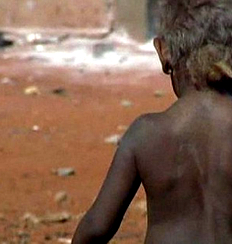Study sees sound result from decade chasing deficiency
 More than a decade since reports found Indigenous Australians had the highest rates of painful ear infection in the world; cases of otitis media are dropping across the population.
More than a decade since reports found Indigenous Australians had the highest rates of painful ear infection in the world; cases of otitis media are dropping across the population.
Middle ear, or otitis media, is an extremely painful infection which severely diminishes hearing ability, physical and educational development.
The Federal Government officially labelled poor ear health for Indigenous children a “national crisis” in 2010, after it was detected during voluntary health checks in the Northern Territory Emergency Response.
But more recently, the Australian Institute of Health and Welfare (AIHW) has published data showing some improvement.
Dr Fadwa Al-Yaman, lead author of the latest AIHW report, says over the last six years, the rate of ear disease has dropped.
“We found reductions in the proportion of children with middle-ear condition or otitis media, and that was a quite significant reduction,” he said.
“We also found a reduction in hearing loss and we found a reduction in moderate, severe or profound hearing impairment. So there have been significant reductions.”
“Usually kids, as they grow older, their ear disease usually decreases. So it can be a natural process of maturation of the ear. But some of it is also a result of, you know, the public health intervention and the medical intervention,” Dr Al-Yaman said.
Professor Amanda Leach, a researcher with the Menzies School of Health Research in the Northern Territory, says while the improvements have been excellent for some, there is still a great deal to confront in the country’s neglected populations.
“To be honest, in remote communities... I don't think things are really improving,” she said in an interview over the weekend.
“I think people are struggling massively across the board with mental health issues, with education, poor education outcomes, lack of employment, lack of self-esteem.
“And they're fundamental issues and from everything that we're seeing, from our research at Menzies, across all divisions, would be that no: in the really big picture, things are not really improving.”








 Print
Print